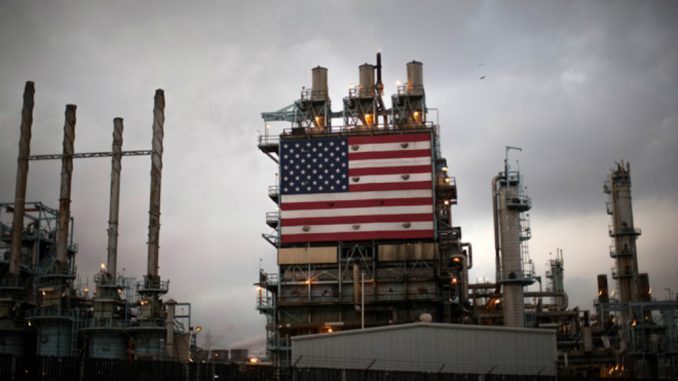
As Iraqi lawmakers voted to approve a “reciprocity measure” that might see U.S. nationals banned from entering the country in retaliation against Trump’s visa ban for Iraqi’s, how can the US oil companies in Iraq and the whole oil production be affected?
Trump’s order bans Syrian refugees, claiming they are “detrimental” to the interests of the United States, and suspends the refugee admissions program for all countries for 120 days. It will also suspend the issue of visas to nationals of countries where the US believes they do not provide enough information on an applicant to decide whether or not they are a security or public safety threat.
Those countries are Iran, Iraq, Libya, Somalia, Sudan, Syria, and Yemen.
“I’m establishing new vetting measures to keep radical Islamic terrorists out of the United States of America. We don’t want them here. We want to ensure that we are not admitting into our country the very threats our soldiers are fighting overseas,” he said in a speech at the Pentagon.
Trump’s executive action fulfills his campaign promise to bar Syrian refugees and partially fulfills his vow to temporarily ban Muslims from the U.S. — a promise he later amended to apply only to people from certain Muslim-majority countries.
US oil companies in danger
The Iraqi parliament’s foreign committee earlier issued a statement calling on the Iraqi government to act after President Trump controversially ordered that citizens from Iraq and six other Muslim-majority countries be refused entry to the U.S. for at least 90 days. “Iraq is on the front line of the war on terrorism,” said the statement, released Sunday. “It is unfair that the Iraqis are treated in this way.”
If a retaliatory ban were to be enacted it could impact thousands of American aid workers, contractors and journalists currently working in Iraq, as well as more than 5,000 U.S. military personnel there to aid Iraqi forces in their effort to oust ISIS from Mosul and the country. The biggest threat is against the oil companies working in Iraq.
U.S. companies working in Iraq include Exxon Mobil Corp. and oil-service providers Schlumberger Ltd., Halliburton Co. and Baker Hughes Inc. Most expatriates in Iraq work on rotation, leaving and returning to the country every few weeks, a routine that any entry ban would have disrupted.
“If the policy was reciprocated, it could have been catastrophic for both countries,” Luay Al Khatteeb, a fellow at Columbia University’s Center on Global Energy Policy, said by phone from London. “It would have affected production.” Iraq pumped 4.61 million barrels a day in December, data compiled by Bloomberg show.
However, Iraqi Prime Minister Haider Al-Abadi declined to issue a ban, sending reassurance messages to the US companies.
“We won’t apply the same rules,” the prime minister said. “Fighting terror is a strategic issue for us.”
Future Contracts
Trump’s visa ban probably won’t have a direct impact on the companies’ operations in Iraq, as many send their Iraqi staff to other places in the Middle East for training and meetings rather than to the U.S., said Robin Mills, chief executive officer of consultant Qamar Energy in Dubai. “It wasn’t easy for Iraqis to get visas before anyway,” he said.
Mistrust and hostility caused by Trump’s order could harm U.S. businesses’ chances of winning future contracts in Iraq, Mills said. No U.S. oil companies have sought to take part in a bidding round to develop 12 small to medium-sized oil fields, due to take place this year.
The U.S. ban also applies to the semi-autonomous Kurdish region in northern Iraq. Chevron Corp., which is exploring for oil in the Kurdish enclave, said on Monday that it didn’t anticipate any impact from the travel ban.
Kurdish authorities consider the U.S. an ally but expect “more assistance and understanding” from the Trump administration for Iraq and the Kurds, who have been battling Islamic State and harboring refugees, Safeen Dizayee, spokesman of the Kurdistan Regional Government, said Tuesday in a text message.
Of the seven countries targeted by the order, only Iran has so far announced reciprocal measures. Iran’s Foreign Minister Mohammad Javad Zarif tweeted that his country would stop issuing visas to Americans but not bar those who already hold one, describing the U.S. measure as a “great gift to extremists.” No U.S. companies work in Iran’s oil industry or in that of fellow OPEC member Libya.
